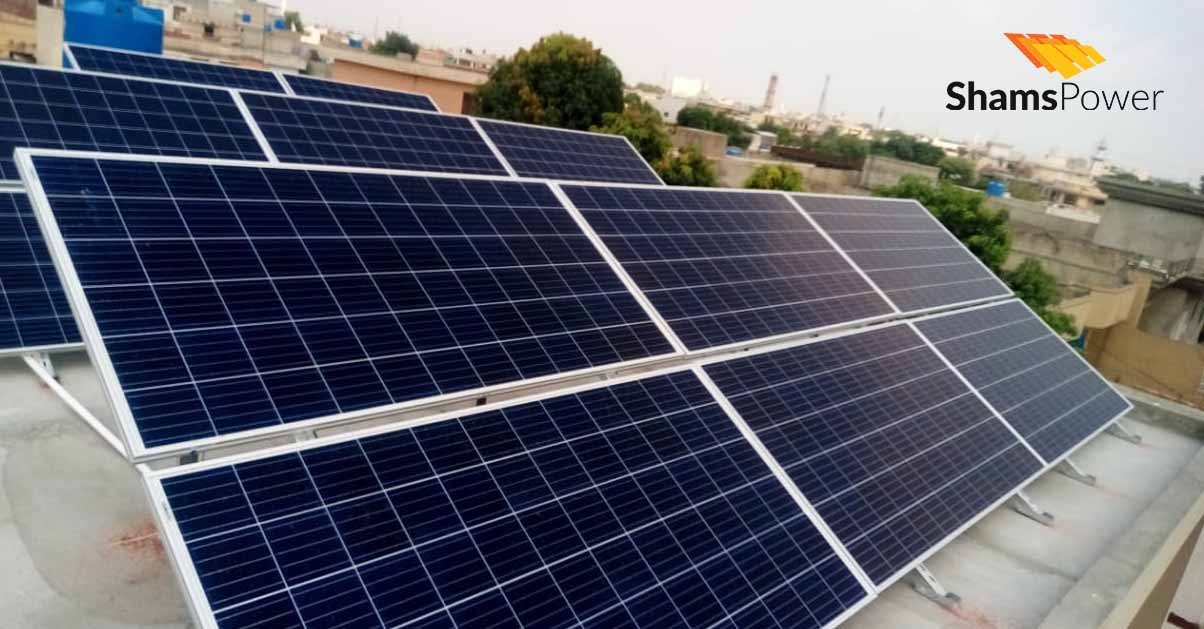Harnessing the Power of the Sun: Solar Panel Systems in Pakistan's Industrial Sector with SHAMS Power
In recent years, Pakistan has been actively seeking
sustainable solutions to address its energy challenges. With a rapidly growing
population and increasing industrialization, the demand for electricity has
surged, putting strain on the country's conventional energy resources. In
response to this pressing need, Pakistan has turned to renewable energy
sources, particularly solar power, to diversify its energy mix and reduce its
reliance on fossil fuels. Among the initiatives aimed at promoting solar energy
adoption, the Solar for industries sectors (SHAMS) program has emerged
as a significant player, offering incentives and support for the deployment of
solar panel systems across various sectors, including the industrial segment.
The Need for Solar Power in Pakistan's Industrial Sector
Pakistan's industrial sector is a significant contributor to
the country's economy, accounting for a substantial portion of its GDP and
employment. However, the sector's growth is heavily dependent on a reliable and
affordable energy supply, which has often been compromised due to frequent
power outages and escalating electricity costs. This dependency on conventional
energy sources not only poses financial challenges for industrialists but also
undermines the sector's competitiveness and sustainability.
In light of these issues, solar power presents a compelling
solution for Pakistan's industrial sector. With abundant sunlight throughout
the year, Pakistan possesses immense solar energy potential that remains
largely untapped. By harnessing this renewable resource, industrial enterprises
can secure a stable and cost-effective energy supply, reduce their carbon
footprint, and enhance their operational resilience.
The Role of SHAMS Power in Promoting Solar Panel Systems
The SHAMS Power, initiated by the Government of Pakistan
in collaboration with various stakeholders, aims to accelerate the adoption of
solar energy technologies across different sectors, including residential,
commercial, and industrial. Through financial incentives, technical assistance,
and policy support, SHAMS Power endeavors to make solar power more accessible
and affordable for businesses, thereby fostering sustainable development and
mitigating the adverse effects of climate change.
For industrial enterprises, SHAMS Power offers tailored
solutions to facilitate the deployment of solar panel systems suited to their
specific energy needs and operational requirements. By leveraging economies of
scale and bulk procurement mechanisms, SHAMS Power enables industrialists to
benefit from cost-effective solar solutions, including photovoltaic (PV)
panels, inverters, mounting structures, and energy storage systems.
Moreover, SHAMS Power provides comprehensive consultancy
services to industrial clients, covering feasibility assessments, system design,
installation, and maintenance. This end-to-end support ensures that solar
projects are implemented efficiently and effectively, maximizing energy yield
and return on investment for businesses.
Benefits of Solar Panel Systems for Industrial Enterprises
The adoption of solar panel systems offers numerous benefits
for industrial enterprises in Pakistan:
Cost Savings: Solar power allows industrialists to
significantly reduce their electricity bills by generating their own clean
energy onsite. With fixed solar tariffs and minimal operating expenses, solar
panel systems offer a cost-effective alternative to grid electricity, providing
long-term savings and improved financial stability for businesses.
Energy Independence: By installing solar panel systems,
industrial enterprises can become less reliant on external energy sources, such
as the national grid, which is susceptible to disruptions and price
fluctuations. This energy independence enhances operational resilience and
ensures uninterrupted production processes, even during power outages or grid
instability.
Environmental Sustainability: Solar power is a clean and
renewable energy source that produces no greenhouse gas emissions or air
pollutants during operation. By transitioning to solar energy, industrial
enterprises can mitigate their carbon footprint, contribute to environmental
conservation efforts, and demonstrate their commitment to corporate social
responsibility.
Government Incentives: The Government of Pakistan offers
various incentives and subsidies to encourage the adoption of solar energy,
including tax credits, duty exemptions, and net metering policies. By
participating in initiatives like the SHAMS Power, industrialists can avail
themselves of these incentives and leverage them to offset the upfront costs of
solar installations.
Enhanced Reputation: Embracing solar energy can enhance the
reputation and brand image of industrial enterprises, positioning them as
environmentally responsible and forward-thinking organizations. This can lead
to increased customer loyalty, stakeholder engagement, and market
competitiveness in an increasingly sustainability-conscious business landscape.
Case Studies: Success Stories of Solar Adoption in Pakistan's Industrial Sector
Numerous industrial enterprises in Pakistan have already
embraced solar energy and reaped significant benefits from its adoption. Some
notable case studies include:
Textile Industry: Textile manufacturers, such as Sapphire
Textile Mills and Nishat Mills, have installed large-scale solar panel systems
to power their production facilities and reduce energy costs. These initiatives
have enabled them to achieve substantial savings on electricity bills while
enhancing their environmental credentials.
Food Processing Sector: Companies in the food processing
sector, such as Engro Foods and Shan Foods, have integrated solar power into
their operations to meet their energy needs sustainably. By leveraging solar
energy, these enterprises have minimized their reliance on fossil fuels and
contributed to the reduction of greenhouse gas emissions.
Automotive Manufacturing: Leading automotive manufacturers,
including Toyota and Honda, have implemented solar panel systems at their
manufacturing plants to support their production processes and reduce carbon
emissions. These initiatives demonstrate the feasibility and effectiveness of
solar energy adoption in the industrial sector.
Conclusion
Solar panel systems have emerged as a compelling solution for addressing the energy needs of Pakistan's industrial sector, offering cost savings, energy independence, and environmental sustainability. With the support of initiatives like the SHAMS Power, industrial enterprises can harness the power of the sun to enhance their competitiveness, resilience, and sustainability in the face of evolving energy challenges. By embracing solar energy, Pakistan's industrial sector can pave the way for a brighter and more sustainable future, driving economic growth while mitigating the adverse effects of climate change.

.jpg)

Comments
Post a Comment